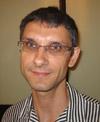Referеnces
- Bart R. Mythologies. Moscow, 2010. 351 p. (In Russ.)
- World Encyclopedia: Philosophy. Moscow ; Minsk, 2001. 1312 p. (In Russ.)
- Kabyshev S. Turnkey university. In: Rossiyskaya Gazeta. 2022. № 133 (8781). p. 10. (In Russ.)
- Kozlova T. A. The influence of postmodern trends on the development of philosophical anthropology. In: Filisofskaya misl. 2020. № 4. P. 14–23. (In Russ.)
- Kozlova T. A. Methodology of studying man in the postmodern era. In: Vestnik Tomskogo Universiteta. 2017. № 1. P. 62–71. (In Russ.)
- Kozlova T. A. The potential of the phenomenological approach for man and education. In: Vestnik Mininskogo Universiteta. 2020. № 1. P. 55–61. (In Russ.)
- Kutyrev V. A. Man of technology, civilization of falsehood. Saint-Petersburg, 2022. 288 p. (In Russ.)
- Kutyrev V. A., Slyusarev V. V., Khusyainov T. M. Humanity and Technos: philosophy of coevolution. Saint-Petersburg, 2020. 260 p. (In Russ.)
- Campbell J. A thousand-faced hero. St. Petersburg, 2018. 480 p. (In Russ.)
- Losev A. Dialectics of myth. Philosophy. Mythology. Culture. Moscow, 1991. 525 p. (In Russ.)
- Naidysh V. M. Philosophy of mythology. From antiquity to the era of Romanticism. Moscow, 2002. 554 p. (In Russ.)
- Systematics of the terminological apparatus of pedagogy in the conditions of paradigmatic changes as a factor of updating the content of pedagogical education. Minsk, 2019. 308 p. (In Russ.)
- Saussure F. de. Works on linguistics. Moscow, 1977. 695 p. (In Russ.)
- Umberto E. The Absent Structure. Introduction to Semiology. Saint-Petersburg, 1998. 432 p. (In Russ.)
- Eliade M. Aspects of myth. In: Akademicheskiy Prospekt. 2010. 256 p. (In Russ.)
- Ivashevsky S. L. Education and ideology. In: Russian education and society. 2011. № 53. № 6. P. 42–48.
- Vanhemping E. G. «Fricative-fake» cluster of auxiliary academic services as a phenomenon of destruction of university practices: the origins of the problem and solutions [Electronic resource]. In: Nepreryvnoe obrazovanie: XXI vek [Lifelong education: The 21st century]. 2022. № 1 (37). Electron. dan. DOI: 10.15393/j5.art.2022.7424 (date of access: 15.11.2022). (In Russ.)
- Vetrov S. A. Myth-making in the process of institutional transformations of culture. Concept. 2013. № 2 (February). ART 13025 [Electronic resource]. Electron. dan. URL: http://e-koncept.ru/2013/13025.htm (date of access: 15.11.2022). (In Russ.)
- Dautova O. Interaction of pedagogical theory and practice: analysis of the state based on the study of conceptual and terminological fields [Electronic resource]. In: Nepreryvnoe obrazovanie: XXI vek [Lifelong education: The 21st century]. 2021. № 4 (36). Electron. dan. DOI: 10.15393/j5.art.2021.7164 (date of access: 15.11.2022). (In Russ.)
- Kozlova T. A. Classical and non-classical philosophical anthropology: comparative analysis. [Electronic resource]. In: Vestnik Mininskogo Universiteta. 2018. № 1. Electron. dan. URL: http://vestnik.mininuniver.ru/jour/article/view/764 (date of access: 15.11.2022). (In Russ.)
- Pyatigorsky A. M. Mythology and consciousness of modern man. In: «Publichnye lekcii Polit.ru» [Electronic resource]. Electron. dan. URL: https://polit.ru/article/2006/03/02/pjatigorsky/ (date of access: 15.11.2022). (In Russ.)
- Khoruzhaya S. V. The role of the Russian state in the functioning of the education system as a socio-cultural phenomenon [Electronic resource]. In: Obshchestvo: filosofiya, istoriya, kul'tura. 2021. № 11. P. 93‒98. Electron. dan. URL: https://doi.org/10.24158/fik.2021.11.15 (date of access: 15.11.2022). (In Russ.)













